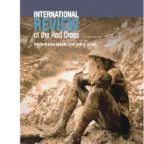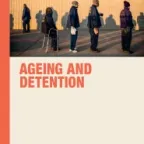Urban Violence and the ICRC's Humanitarian Response
The destructive force of urban violence on people’s lives and livelihoods – and the suffering it causes – is a major concern of the ICRC in many countries in which it works around the world. This …
The destructive force of urban violence on people’s lives and livelihoods – and the suffering it causes – is a major concern of the ICRC in many countries in which it works around the world. This …
The COVID-19 pandemic in Indonesia prompted Keluarga Buddhayana Indonesia (KBI, The Family of Buddhayana in Indonesia) to invite the ICRC to address queries and anxieties within the Buddhist …

Businesses can have both positive and negative effects on communities in conflict-affected or high-risk areas. They may contribute to the violence, but they may also be the victims of it, or even …

To mark the 100th anniversary of the First World War, the Review asked historians, legal scholars and humanitarian practitioners to look back at the wars of the past century from a humanitarian point …

The ICRC hires a variety of skilled professionals to provide agile and reliable logistical support. In all our work, logistics is vital: almost 25% of our staff work in logistics and their activities …
Strengthening the security and preparedness of health-care facilities to withstand violence and attacks is key to ensuring people continue to have access to health care in conflict, or other …
Is torture wrong or part of war? If the laws of war were better respected, would civilians flee their countries? Is attacking hospitals, ambulances and health-care workers wrong or part of war? These …
In the field, the safety and security of humanitarian workers is a major concern, especially in conflict zones. To address it, passive security measures can be implemented to help mitigate the …

Although all older people have the same basic needs, failure to meet these needs – and the additional needs that arise in detention – can have particularly severe consequences, and take a heavy toll …

A compilation of the four quarterly IHL bibliographies issued by the ICRC Library during 2015. …
Try one of the following resources:
Created in 1863, the ICRC library, alongside the ICRC archives, provides an indispensable documentary reference on the organization itself and international humanitarian law.
International humanitarian law is based on a number of treaties, in particular the Geneva Conventions of 1949 and their Additional Protocols, and a series of other instruments.
Customary international humanitarian law consists of rules that come from "a general practice accepted as law" and that exist independent of treaty law.